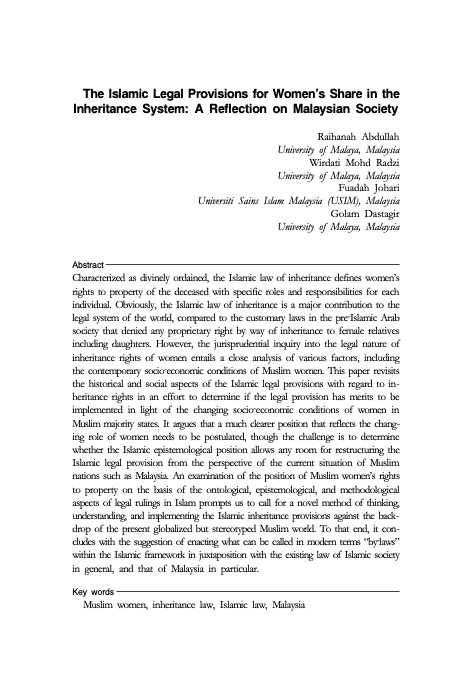Resource information
Characterized as divinely ordained, the Islamic law of inheritance defines women’s rights to property of the deceased with specific roles and responsibilities for each individual. Obviously, the Islamic law of inheritance is a major contribution to the legal system of the world, compared to the customary laws in the pre‐Islamic Arab society that denied any proprietary right by way of inheritance to female relatives including daughters. However, the jurisprudential inquiry into the legal nature of inheritance rights of women entails a close analysis of various factors, including the contemporary socio‐economic conditions of Muslim women. This paper revisits the historical and social aspects of the Islamic legal provisions with regard to inheritance rights in an effort to determine if the legal provision has merits to be implemented in light of the changing socio‐economic conditions of women in Muslim majority states. It argues that a much clearer position that reflects the changing role of women needs to be postulated, though the challenge is to determine whether the Islamic epistemological position allows any room for restructuring the Islamic legal provision from the perspective of the current situation of Muslim nations such as Malaysia. An examination of the position of Muslim women’s rights to property on the basis of the ontological, epistemological, and methodological aspects of legal rulings in Islam prompts us to call for a novel method of thinking, understanding, and implementing the Islamic inheritance provisions against the backdrop of the present globalized but stereotyped Muslim world. To that end, it concludes with the suggestion of enacting what can be called in modern terms “by‐laws” within the Islamic framework in juxtaposition with the existing law of Islamic society in general, and that of Malaysia in particular.

